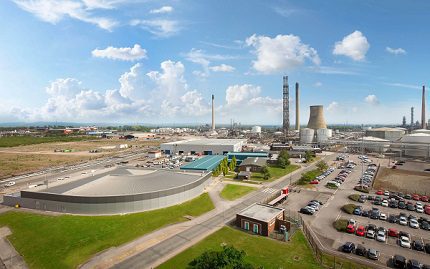News
Biorefinery set for take-off at Stanlow
A new facility, which will convert non-recyclable household waste into sustainable aviation fuel (SAF) for use by airlines operating at UK airports, has been created in a joint venture between Essar Oil (UK) Limited (Essar), Fulcrum BioEnergy Limited (Fulcrum) and Essar’s subsidiary company Stanlow Terminals Limited.This innovative bio-refinery will convert several hundred thousand tonnes of pre-processed waste, which would have otherwise been destined for incineration or landfill, into approximately 100 million litres of low carbon SAF annually.
The project, which will see an investment of approximately £600m, will use Fulcrum’s proven waste-to-fuel process, which is already being deployed at its pioneering facility outside of Reno, Nevada in the United States, where operations are due to begin later this year.
Fulcrum will construct, own and operate the plant within Essar’s Stanlow manufacturing complex in the North West of England and Essar will assist with the blending and supply the new SAF to airlines, with Stanlow Terminals Limited providing product storage and logistics solutions for the project under a long-term agreement.
UKPIA director-general, Stephen Marcos Jones, commented:
“Today’s announcement demonstrates how critical Essar’s Stanlow Refinery is to the success of these efforts to decarbonise the economy of the North West, as well as showing more broadly how the downstream oil sector is an ally in the UK’s ambitions to reach ‘Net Zero’ emissions by 2050, as outlined in UKPIA’s Transition, Transformation and Innovation report.
“Aviation is going to be one of the hardest sectors to decarbonise, so this investment by Essar and Fulcrum to build a biorefinery in the UK is paramount to meeting the Net-Zero commitment.”
The project, named Fulcrum NorthPoint, will create 800 direct and indirect jobs during the design, build and commissioning process and over 100 permanent jobs during its operation. Plans for Fulcrum NorthPoint are expected to be complete at the end of this year and subject to planning consent, will be operational in late 2025.
